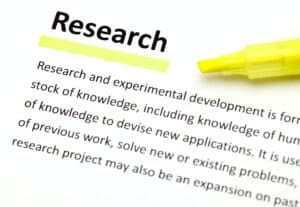Reading Time: 11 minutes
How does one view life in terms of growth? Yes. How we perceive our intellect can affect how we feel as well as what we can accomplish. The growth mindset is the belief that intelligence and talent are possible in time. Typically you think intelligence is fixed.
Mindset Health focuses mainly on the growth mindset and helping people to develop an optimistic view of learning.
What is Growth Mindset vs Fixed Mindset
Usually, people who believe they need improvement view intelligence as being able to learn and improve through effort. Similarly, a person with a fixed mindset means one sees these qualities as stable and unchangeable at any point in time. For example, a young and successful entrepreneur requires basic financial skills to make and publish their finances. If you are a fixer, your thinking might be that I have no good financial statistics or math knowledge. Now imagine that you are guiding the situation in an optimistic direction.
Background Research

Scientists had said a time ago that humans don’t develop at a young age, but now we know that brains change. Several parts of our minds are influenced by experience, and our minds can also be modified through learning. Even with the neurological data, there is always a misconception that we are confined by the talent that we were born with: Smartness.
Who identified the growth mindset?
Psychologist Dr. Carol Dweck was a researcher investigating fixed vs. growth mindsets. In her most significant writing Mindset: The New Psychology of Success, Dr. Dweck described how many think people have both intelligence and abilities.
Dr. Dweck described fixed and growth mindsets as a concept. Dweck’s groundbreaking research examines the reasons for some people do not succeed or not. In a study, students were faced with a variety of challenging puzzles. Many of Dweck’s students welcomed failure as a learning experience and embraced that positivity, which she termed a growth mindset. Contrary to common opinion, a study conducted by Dweck demonstrates the benefit of praise rather than natural talent.
The neuroscience of the growth mindset
Researchers are looking for brain correlation to a growth mindset. In neuroimaging studies, the association of the growth mind with the activity of two important brain regions: Developing and maintaining growth minds may increase motivation. Furthermore, there is low activation after negative feedback. In addition, scientists showed that growth-minded people’s brains were activated when people told them their ways to improve, such as suggestions for improving the next time.
Can a person’s mindset change?
In addition to growing intellectual ability, a person tends to change brain function and thoughts patterns. Brain development continues even in adulthood. Brains are similar to plastic, but they can be modified with time by developing new neural pathways. Scientists have identified brain changes as neuroplasticity through growth and reorganization.
Studies have demonstrated the human brain is capable of increasing the strength and speed of pulse-frequency communication.
This indicates people with fixed mindsets can slowly build up to a growth mindset.
What is a Fixed Mindset?

A person confined to his or her mind has a set pattern. They believe humans are born with unique skills and that they all have unique capabilities and intelligence which can only get better with time, perseverance, and effort. They view failures as proof of a lack of knowledge which prevents a person from attaining the desired outcome in life. Those who have no motivation to succeed are often afraid of failure or are afraid they cannot improve themselves.
How can you tell if a mindset is fixed or growing?
Several indicators can help to indicate whether someone has a fixed vs growth mindset. For example, those with a fixed mindset may be more likely to procrastinate, as they tend to view failure or setbacks as a sign that they lack the necessary ability or talent to succeed. By contrast, individuals with growth mindsets find it easier to motivate themselves in the face of difficulty, seeing setbacks as an opportunity for learning and improvement rather than ending up discouraged.
Additionally, people with fixed mindsets often struggle to accept constructive feedback from others around them; whereas those with growth mindsets are more open to input and criticism, seeing this feedback as an essential tool for helping them to improve their performance over time. Overall, these key indicators can help you make sense of whether someone has a fixed or growth mindset and adapt your response accordingly.
3 Examples of a fixed mindset
There are several key characteristics of a fixed mindset, each of which reflects a certain rigidity and inflexibility in one’s thinking. For example:
- People with a fixed mindset tend to view their abilities and talents as innate traits that are unchangeable.
- They may be more prone to perceiving failure or setbacks as indications of intellectual shortcomings rather than opportunities for growth and learning.
- Individuals with a fixed mindset often struggle to accept constructive criticism or feedback, believing instead that they should focus solely on their performance outcomes as a measure of success.
Disadvantages of a Fixed Mindset
Are people afraid of failure and not doing their work hard for fear of failure? It’s an unchangeable mentality. They are also unable to develop new knowledge or seek solutions. Then they’ll say they are simply not good at it despite a few attempts.
Overall, these tendencies can undermine personal growth and make it difficult to achieve one’s full potential without the support of an adaptive mindset.
What is a Growth Mindset?
 A growth mindset is a way of approaching one’s own life and learning that focuses on the belief that the growth mindset views intelligence and skills that can be developed over time through hard work and dedication. People with growth mindsets believe that setbacks and failures are opportunities to learn, grow, and improve.
A growth mindset is a way of approaching one’s own life and learning that focuses on the belief that the growth mindset views intelligence and skills that can be developed over time through hard work and dedication. People with growth mindsets believe that setbacks and failures are opportunities to learn, grow, and improve.
They understand that success does not come easily, but they embrace the challenge of overcoming obstacles to reach their goals.
This mindset is based on the idea that there is always room for improvement, and it encourages people to continue striving for excellence even in the face of setbacks or failure. Whether in school, at work, or in any other aspect of our lives, cultivating a growth mindset can help us achieve our full potential and make meaningful progress toward our goals.
3 Examples of growth mindsets
There are many different examples of growth mindsets, but here are three that stand out as particularly effective.
- The belief that our abilities can be improved through more effort and practice, rather than being fixed at birth. This means staying open to new ideas and feedback rather than letting pride or a sense of superiority get in the way of learning from others.
- Having a growth mindset also involves seeing mistakes as opportunities for improvement rather than failures to be avoided at all costs. By embracing challenges instead of running away from them, we can grow and develop our skills over time.
- Growth mindset is carrying a positive outlook: recognizing that setbacks and failures are simply part of the learning process, and realizing that everyone experiences them at some point.
Armed with these three principles, we can all embrace a growth mindset to unlock our true potential.
Can you Promote a Growth Mindset?

While learning the growth mindset starts at a young age there is no point limiting it. Our brain adapts very well to new ideas. When we push our boundaries, we allow our minds to develop new connections. With practice, this connection becomes stronger.
Important Questions to Consider
What triggers a fixed mindset?
Several different factors can trigger a fixed mindset in individuals. For one, being overly focused on past successes or failures can be a major driving force behind adopting a fixed mindset. Additionally, seeing other people as having innate talents and abilities, rather than as hard workers who have achieved success through rewarding effort, can also cause this type of thinking to take root. Other potential triggers for a fixed mindset include negative feedback from others and self-doubt about one’s abilities.
Ultimately, it is important to recognize the danger of adopting such a narrow and rigid outlook on life and to do what we can to cultivate flexibility and growth-oriented thinking instead.
What do people with fixed mindsets focus most on?
People with a fixed mindset tend to focus most on their perceived limits and shortcomings. Whether it’s worrying about not being smart enough or skilled enough or beating themselves up for making a mistake, those with a fixed mindset place a great deal of importance on seeming perfect and flawless in their endeavors.
In contrast, people with growth mindsets tend to be more focused on improving their skills and learning from their experiences. Rather than worrying about falling short of an ideal standard, they are motivated by the belief that they can always get better at what they do.
Overall, this huge difference in focus is reflected in the different ways that people think about learning and challenge, ultimately shaping their approach to life as a whole.
How does a fixed mindset affect the brain?
A person with a fixed mindset tends to view their abilities and traits as firmly set and unchanging. This belief can result in an unhealthy attitude towards failure since these individuals believe that mistakes are a sign of personal weakness or lack of talent. What’s more, this type of thinking has been shown to have negative effects on brain activity, reducing activity in the areas associated with learning and growth. Fixed mindset individuals may experience reduced cognitive flexibility, diminished capacity for working memory, and even decreased volume in the hippocampus.
Ultimately, by their mindset, these individuals limit their opportunities for growth and development. At the same time, they put themselves at risk of experiencing negative consequences related to maladaptive behavior patterns.
Given all this, it is clear that having a fixed mindset can pose serious risks both to overall psychological well-being and brain health.
What factors influence a growth mindset?
Many different factors can influence a growth mindset. For starters, a strong work ethic and discipline are crucial in instilling a growth mindset within an individual. Dedicating time and effort towards learning new skills and challenging yourself to try new things can help to cultivate a growth mindset, both at school and beyond.
Additionally, having supportive teachers, family members, and friends is also essential for fostering a growth mindset. These individuals can provide encouragement and inspiration as you work towards achieving your goals, no matter how big or small they may be.
Ultimately, what it comes down to is embracing the belief that you have the power to be whoever you want to be and that nothing is ever out of reach if you put in the effort and stay focused on your goals. Whether you’re just starting out or well on your way to success, a growth mindset will always help pave the way toward achieving all of your dreams.
Why are growth mindsets important in everyday life?
A growth mindset is essential for success in all aspects of life. This psychological concept suggests that our attitudes and beliefs have a powerful impact on our abilities and behaviors, and it encourages us to embrace constant learning, growth, and change. A growth mindset seems particularly important when it comes to tackling challenges or learning new skills. When we believe that failure or setbacks are simply temporary experiences and not indications of our underlying capabilities, we are better equipped to push through difficulties and persist in the face of adversity. By fostering a growth mindset in ourselves and others, we can create a supportive environment that helps us thrive both personally and professionally.
Whether we are students struggling with schoolwork or professionals seeking career advancement, cultivating a growth mindset will allow us to achieve our full potential.
In short, having a growth mindset helps us reach our goals and step confidently into the unknown.
5 Effective Strategies to Shift a Fixed Mindset to a Growth Mindset
Many people are mistaken about growth mindsets and it is thought of as an openness that can be considered to be growth-minded. It’s important to possess these characteristics, and it doesn’t give a growing person strength.
There is no constant way to apply growth mindsets. In difficult situations or when confronted with anxiety, we often become defensive. Our minds are always changing due to varying triggers. We must recognize important moments which trigger a fixed mindset.
1. Set learning goals rather than performance goals
Embrace learning every day instead. Rather than focus your goals on reducing body fat, eat healthy daily. Instead of trying to get an average in math, make regular daily practice. Instead of becoming an aspiring professional runner, start exercising every day. Focus on learning as just the starting point.
Focusing on the process rather than the result allows us to find small and permanent improvements over time which can be achieved. When we shift to learning, we choose the right path. Hard work, effort, deliberate practice, and persistence are the keys to achieving success.
2. Capitalize on your failures
Failure explains what success cannot. Instead of avoiding failure and allowing yourself a failure, you can make use of your failure by looking at your mistakes, identifying what did not work, and preparing a solution.
Find support from other people and take risks for the best results. When you start thinking of failure as an opportunity for learning rather than as a limitation of your ability, you will be able to leverage them.
3. Choose “Goldilocks” tasks for continuous improvement
Goldilock tasks are no difficult or easy tasks but they can be done just slightly more than your existing abilities. These provide an excellent way to leave your comfort zones and escape from your fear and stress levels. In investing in Goldilocks, we will build on your present abilities slowly and steadily.
4. Be consistent
Taking regular action is another powerful way to shift from a fixed to a growth mindset. Whether it’s learning something new or simply stepping out of our comfort zone, taking consistent steps toward our goals can greatly accelerate our transformation toward this way of thinking.
5. Choose to tell yourself a different story
It’s powerful to tell stories to our readers about themselves. What are your choices for your life and why? How you perceive difficult situations depends on your own story. Our actions are nothing but reflections of our beliefs. It can help a person learn to catch himself up in the moment, make logical decisions and change their vocabulary in the process. Why don’t I just tell the truth?
4 Reasons Business Leaders Need a Growth Mindset
Business leaders need to have a growth mindset to be successful people. This involves being open to new ideas, embracing change, and continually learning and developing skills.
1. Stay agile and adaptable
A growth mindset allows business leaders to stay agile and adaptable in a constantly changing market. Having an ongoing appetite for learning and experience enables them to stay ahead of trends, respond quickly to challenges, and seize new opportunities as they arise.
2. Maintain good relationships with employees
Having a growth mindset is important for maintaining good relationships with employees. Executives who demonstrate that they are willing to embrace new ideas from their team members are more likely to inspire trust and loyalty in those employees. By fostering collaboration and creativity, business leaders can help drive innovation and create a company culture that is both productive and supportive.
3. Manage risk effectively
Having a growth mindset helps business leaders manage risk effectively. They can take calculated risks as necessary without getting discouraged by setbacks or failures along the way. Instead of becoming defensive or discouraged when things go wrong, this type of executive can learn from those experiences and make better decisions moving forward.
4. Remain flexible in the face of change or uncertainty
a growth mindset allows business leaders to remain flexible in the face of change or uncertainty. Whether dealing with unexpected competition or shifts in consumer demand, executives with the right outlook can approach these challenges with curiosity and optimism instead of feeling overwhelmed or frustrated by them.
Overall, these four reasons underscore why it is so essential for business leaders to have a growth mindset if they want to succeed in today’s fast-paced environment.
In Conclusion
The takeaway from all of this is that if you want to achieve more in your life, it’s time to start thinking like a growth mindset individual. A fixed mindset will keep you stuck where you are, but a growth mindset allows for infinite possibilities. What areas of your life would benefit from adopting a growth mindset? We challenge you to try it out and see what happens!










